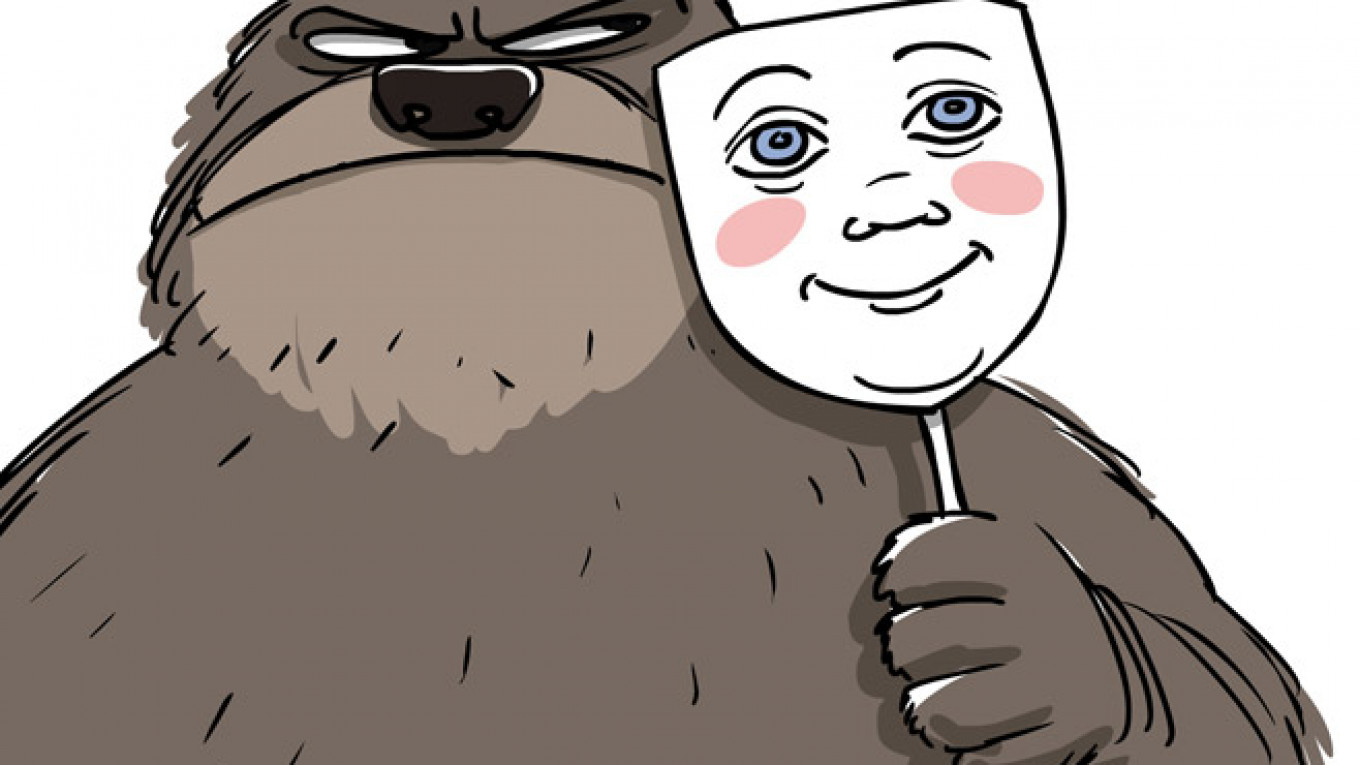One good thing about the Ukraine crisis is that at least now everyone can stop pretending. Russia can stop pretending that it is part of Europe, and Europe can stop pretending it agrees.
I remember numerous seminars and conferences with Russian and European politicians at which everyone wore fake smiles and made speeches to the effect that "Europe is our common homeland," the Cold War is over, we no longer pose a threat to each other and so on. The common understanding was that the Cold War had ended with the 1986 summit between U.S. President Ronald Reagan and Soviet leader Mikhail Gorbachev in Reykjavik.
But nobody believed their own words. Russian politicians are more accustomed to trading nationalist jokes about how Russian tanks can take Kiev or Berlin in "a couple of weeks" than engaging in obscure talks about common values. And the typical European bureaucrat is more accustomed to viewing Russians as aggressors and imperialists than as visa-free tourists trekking around Europe.
Still, the West just went right on "teaching" Russia in the way an exasperated instructor teaches an indifferent student — alternating between condescension and irritation — but always without any real hope of turning this "hooligan" into an upright and decent person. And even while mouthing those politically correct sentiments, the average Russian politician was always thinking that this whole "European thing" is not for Russia, that this country has its own path to follow and that nobody can teach us what is right or wrong.
That is why the two sides could gone on forever negotiating a visa-free regime without ever reaching an agreement, but were prepared, as it turns out, to start a new Cold War at the drop of a hat.
What's more, they do so with an almost tangible sense of relief. First, everything is back to usual, nobody has to feel any cognitive dissonance and the same old cliches are back in place.
Second, it turns out that both sides were justified in their distrust of each other. Moscow was right to suspect that "aggressive NATO" had a purpose in creeping up to Russia's borders and the West was justified in persistently raising concerns that Russia might revive its imperialist ambitions. Both sides can now happily point to the other and say, "Hah! I thought so!"
The Ukrainian crisis has given NATO a new lease on life by not only guaranteeing its continued existence, but also by creating a reason for it to expand to include Georgia, Moldova and, eventually, Ukraine. Assuming that German Chancellor Angela Merkel is correct in stating that President Vladimir Putin — and, by extension, the overwhelming majority of Russia's politicians that fully support him — are "living in another world," then, by definition, Western politicians are also "living in another world."
These two worlds share increasingly fewer common principles, values, underlying assumptions and rules of conduct. Mutual understanding has ended and the channels of communication that were fully functional until only recently are now rapidly breaking down before our eyes.
These fundamentally dissimilar world views auger a further deterioration in relations between Russia and the West, regardless of how the Ukrainian crisis — certain to become a protracted struggle — eventually unfolds.
It remains unclear exactly how leaders will frame the new Cold War in terms of institutions and legal documents, largely because both sides are in the process of tearing down the very institutions, relationships and structures developed and used during the first Cold War. These include all sorts of meaningless structures such as the NATO-Russia Council that seemed pointless to begin with and that has finally lost all meaning now.
After acting for two decades as if they had lost the knack of it, Russia and the West have now returned to their customary practice of realpolitik — and it won't be long before both are in top form again.
Russia has also reverted to its natural condition — which, if not an actual state of war, is at least a state of alienation combined with anger and distrust of an outside world that it perceives as eternally hostile to it. And that attitude will determine further changes in Russia's domestic life: the rollback of democratic institutions borrowed from the West, a reassessment of human rights, the role of nongovernmental organizations and transparency in government. In short, Russia will return to the principles that it finds historically more familiar and comfortable.
Most Russian politicians have always felt at heart that it is impossible to establish peace with the West, much less a deeper integration based on a supposed set of "common values." In that sense, peace with the West was always a truce at best.
Georgy Bovt is a political analyst.
A Message from The Moscow Times:
Dear readers,
We are facing unprecedented challenges. Russia's Prosecutor General's Office has designated The Moscow Times as an "undesirable" organization, criminalizing our work and putting our staff at risk of prosecution. This follows our earlier unjust labeling as a "foreign agent."
These actions are direct attempts to silence independent journalism in Russia. The authorities claim our work "discredits the decisions of the Russian leadership." We see things differently: we strive to provide accurate, unbiased reporting on Russia.
We, the journalists of The Moscow Times, refuse to be silenced. But to continue our work, we need your help.
Your support, no matter how small, makes a world of difference. If you can, please support us monthly starting from just $2. It's quick to set up, and every contribution makes a significant impact.
By supporting The Moscow Times, you're defending open, independent journalism in the face of repression. Thank you for standing with us.
Remind me later.







